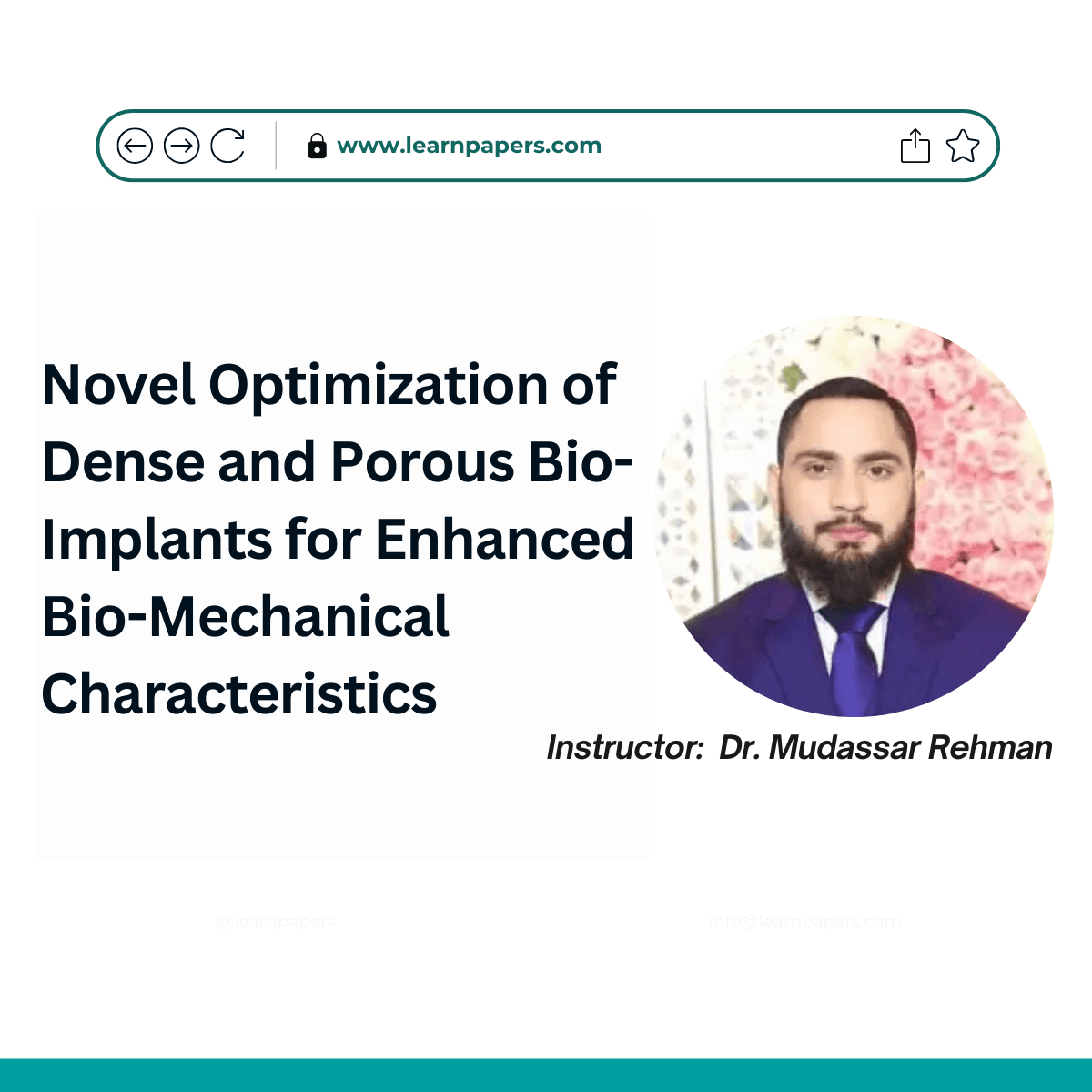Optimization of Dense and Porous Bio-Implants for Enhanced Bio-Mechanical Characteristics

About Course
Bio-implants have become an indispensable part of modern medical procedures, especially in orthopedics and dentistry, where they play a crucial role in restoring functionality to patients. However, the challenge of designing implants with optimal bio-mechanical properties that closely mimic natural bone remains significant. Dense implants often struggle with stress-shielding, while porous structures aim to promote osseointegration but require careful optimization to balance strength and biological compatibility.
This course delves into the advanced techniques for manufacturing and optimizing dense and porous bio-implants using Laser Powder Bed Fusion (L-PBF) technology. Learners will gain a comprehensive understanding of how to achieve superior bio-mechanical characteristics through parametric control, post-processing, and biocompatibility assessments. Whether you are a researcher, engineer, or practitioner in the field of biomedical manufacturing, this course will provide you with valuable insights into the latest advancements in implant technology.
Abstract:
The design and manufacture of bio-implants are critical for their performance and longevity in medical applications. This study focuses on optimizing dense and porous bio-implants manufactured using Laser Powder Bed Fusion (L-PBF) technology. A detailed investigation into the influence of heat treatment, porosity levels, and microstructure on mechanical and biological properties is presented. By applying multi-stage heat treatment processes and evaluating properties such as stress-strain behavior, surface roughness, and in-vitro cytotoxicity, the study identifies the key parameters that enhance implant performance. The findings contribute to developing bio-implants that achieve superior bio-mechanical compatibility and minimize stress-shielding effects, paving the way for improved patient outcomes.
Course Content
Module 1: Introduction to Bio-Implants and Their Role
Module 2: Fundamentals of Laser Powder Bed Fusion (L-PBF)
Module 3: Design and Optimization of Dense and Porous Structures
Module 4: Heat Treatment and Post-Processing Techniques
Module 5: Mechanical Characterization and Property Analysis
Module 6: Microstructure and Biocompatibility Evaluation
Module 7: Parametric Optimization and Real-World Applications
Module 8: Future Directions and Practical Insights
Student Ratings & Reviews

